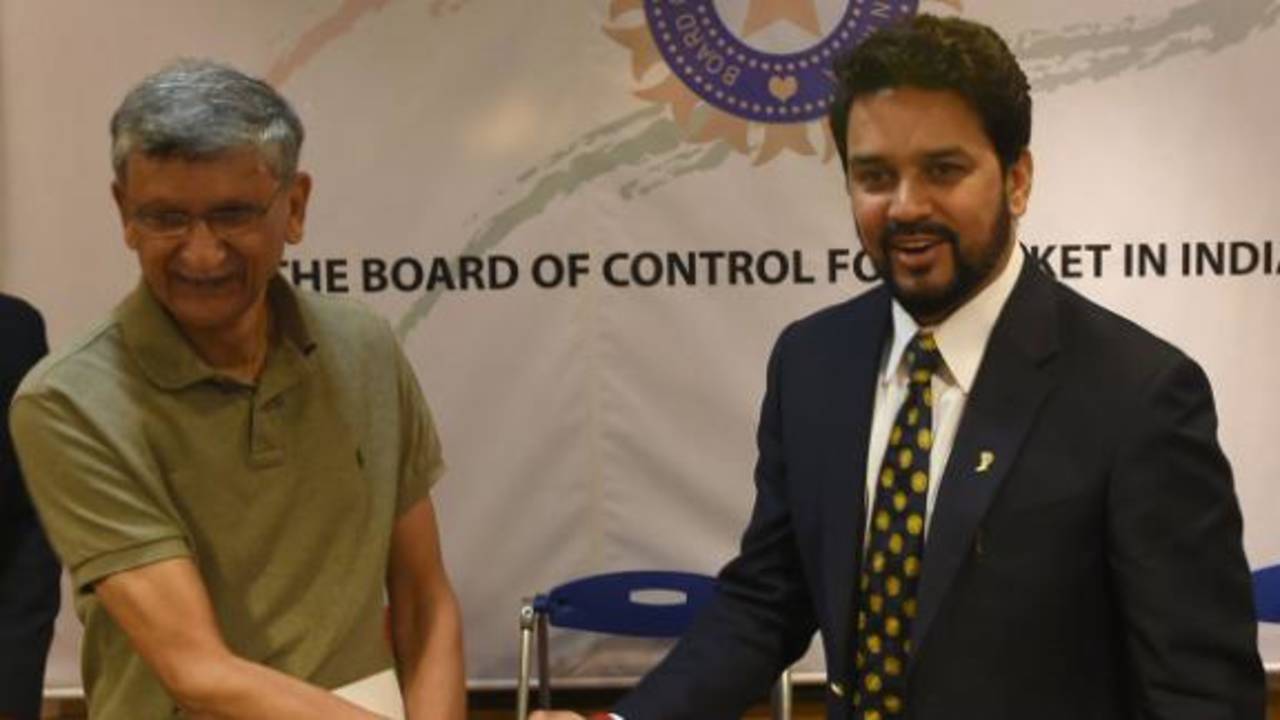In a nutshell: BCCI v Lodha Committee
The BCCI-Lodha Committee standoff has been played out in India's Supreme Court over the past year. Here's a quick look at the big talking points
The Lodha Committee first made headlines when it decided to suspend the team owners of Chennai Super Kings and Rajasthan Royals for a period of two years, and ban for life Gurunath Meiyapppan and Raj Kundra. In its report, the Lodha Committee said: "Disrepute has been brought to cricket, the BCCI and the IPL to such an extent that there are doubts abound in the public whether the game is clean or not."
The Lodha Committee recommended a complete overhaul of Indian cricket - from the very top down to the grassroots - affecting all its stakeholders. It was clear from the committee's report that its recommendations were aimed at taking on the established order in the BCCI. "Policies have been formulated and altered to suit the needs of a few powerful individuals, and coteries have formed around them, which has polarised and compromised independent leadership," the report said.
The BCCI filed a counter-affidavit expressing its reservations on the Lodha report. "During my interaction with the Lodha committee, the committee did not seek my views on the proposed recommendations which ultimately find place in the [Lodha] report," Anurag Thakur, the then BCCI secretary, wrote in the affidavit. Chief Justice TS Thakur, however, was unimpressed by that statement. "It was international news that we had formed the Justice Lodha committee to suggest reforms in cricket. The whole world knew it. Now you come to us and say the recommendations were a bolt from the blue for you and you were not consulted... What were you doing? Waiting at the fence for a written invitation?"
The BCCI was given six months to implement the Lodha Committee reforms, a majority of which had been accepted by the Supreme Court. The court also asked the committee to oversee the implementation process. "The supervision of the transition can, in our opinion, be left to be undertaken by the Committee not only because it has a complete understanding of and insight into the nature of the problems sought to be remedied but also the ability to draw timelines for taking of steps necessary for the implementation of the proposed reforms," the order said. "We are conscious of fact that the process may be time consuming but we hope that the same should be completed within a period of four months or at best six months from today. We, therefore, request the committee headed by Justice Lodha to draw appropriate timelines for implementation of the recommendations and supervise the implementation thereof."
The BCCI said it had "unanimously" adopted "important recommendations" made by the Lodha Committee at its Special General Meeting in Mumbai. However, the list the board said it had accepted did not include key recommendations such as the age cap of 70 years for office bearers, the tenure cap of nine years with cooling-off periods in between, and the one-state-one-vote policy, among others.
The Supreme Court ordered the BCCI to stop issuing funds to state associations that did not comply with the Lodha Committee's recommendations. "If that be the position, there is no reason why the State Associations that are opposed to the reforms suggested by Justice Lodha Committee and accepted by this Court should either expect or draw any benefit from the release of grants by the BCCI."
In separate affidavits submitted to the Supreme Court, BCCI president Anurag Thakur and secretary Ajay Shirke said the Lodha Committee's proposal to disqualify existing office-bearers of the BCCI as well as the state associations that do not satisfy the approved criteria will "paralyse" cricket administration and create "chaos" in the game.
The Supreme Court removed both Thakur and Shirke from their BCCI posts. "The course of events indicates that though sufficient opportunities have been granted to BCCI to comply with the judgment and order of this Court, it has failed to do so," the court order read. "The President and Secretary and office bearers of BCCI have obstructed the implementation of the final directions of this Court on the basis of a specious plea that its State Associations are not willing to abide by the directions. This Court having furnished sufficient opportunities to BCCI to comply, it is constrained now to take recourse to coercive steps to ensure that the directions contained in its final judgment and order are not left to be a writ in sand."
